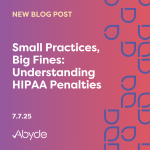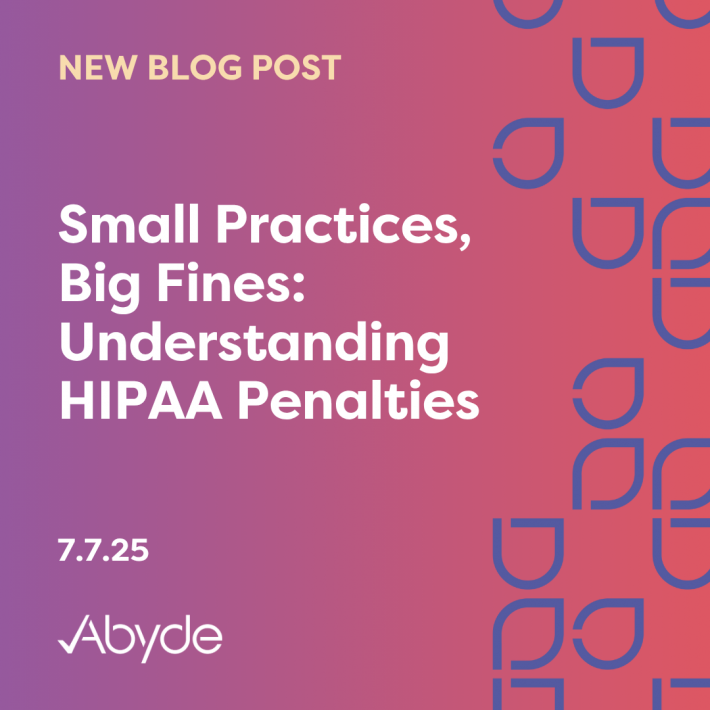September 27, 2023
Healthcare organizations handle a tremendous amount of sensitive data, from patient records to financial information. The Health Insurance Portability and Accountability Act (HIPAA) serves as the regulatory framework that outlines the need for stringent cybersecurity protocols to safeguard this data. Compliance with HIPAA isn’t just a legal obligation; it’s also a critical aspect of building trust with patients and stakeholders. This article will dive deep into the facets of HIPAA cybersecurity compliance, offering a comprehensive guide for healthcare organizations seeking to align with these standards.
What is HIPAA?
Enacted in 1996, the Health Insurance Portability and Accountability Act (HIPAA) aims to streamline healthcare transactions, reduce healthcare fraud and abuse, and ensure patient information remains confidential. Over time, HIPAA has evolved to address the modern complexities of digital healthcare data, most notably through the Privacy and Security Rules.
HIPAA Security Rule
The Security Rule outlines the guidelines that healthcare organizations must follow to ensure the confidentiality, integrity, and availability of electronic protected health information (ePHI). It is broken down into three main categories:
- Administrative Safeguards: Policies, procedures, and workforce training related to managing the selection, development, and execution of security measures.
- Physical Safeguards: Protections to ensure the physical safety of electronic systems and data.
- Technical Safeguards: Automated processes that control data access and integrity.
Importance of Cybersecurity in HIPAA Compliance
Cybersecurity in healthcare is not just about preventing unauthorized access; it’s about building a layered defense mechanism that addresses vulnerabilities across various entry points. Failing to comply can result in hefty fines, legal repercussions, and loss of reputation.
Core Principles for Compliance
Risk Analysis and Management
HIPAA requires healthcare entities to conduct periodic risk analyses to identify potential vulnerabilities. Effective risk management plans should include a multi-layered security approach, such as the use of firewalls, antivirus programs, and encryption protocols.
Abyde: Your HIPAA Compliance Partner
Navigating the intricacies of HIPAA compliance can be daunting. That’s where Abyde comes in. As a leading HIPAA and OSHA Compliance SAAS Company, Abyde offers HIPAA-compliant software designed to simplify compliance, enabling healthcare organizations to focus on what they do best—providing quality care.
With features like automated risk assessments, staff training modules, and continuous compliance monitoring, Abyde is the go-to solution for any organization seeking to secure its electronic healthcare data while adhering to regulatory standards.
Employee Training
Employees often serve as the first line of defense against cyberattacks. Organizations should provide regular training on recognizing phishing emails, using strong passwords, and securing mobile devices with ePHI access.
Access Control
Under HIPAA guidelines, only authorized individuals should have access to ePHI. This requires stringent access controls, including unique user identifications, emergency access procedures, and regular audits.
Data Encryption
Encrypting data in transit and at rest is crucial for protecting sensitive information. While HIPAA does not mandate encryption, it is considered a standard practice in safeguarding ePHI.
Incident Response
In case of a data breach or unauthorized access, healthcare organizations must have an incident response plan that outlines the steps for reporting the breach, identifying the scope, and taking corrective actions.
Tools and Technologies
- Firewalls: Serve as a barrier between your network and incoming traffic.
- Intrusion Detection Systems: Monitor network activity for suspicious patterns.
- Virtual Private Network (VPN): Ensures secure remote access.
- Multi-Factor Authentication (MFA): Adds an additional layer of security by requiring two or more verification methods.
Compliance Monitoring and Audits
Maintaining continuous compliance requires ongoing monitoring. Regular internal and external audits can help identify areas of improvement and validate that existing safeguards are adequate.
Conclusion
HIPAA cybersecurity compliance is a complex but indispensable aspect of healthcare management. By understanding the intricacies of the HIPAA Security Rule and implementing a robust cybersecurity framework, healthcare organizations can protect sensitive data, avoid penalties, and, most importantly, earn the trust of their patients and stakeholders.
Given the evolving nature of cybersecurity threats, compliance is not a one-time endeavor but an ongoing commitment. Organizations should always stay updated with the latest HIPAA amendments and cybersecurity best practices to ensure that they remain compliant and secure.
Recommended Resources
- HealthIT.gov: Guide on Risk Analysis
- Abyde: Updated Compliance Checklists
- NIST Cybersecurity Framework: A Guide for Healthcare Organizations
By keeping up-to-date with compliance requirements and embracing a culture of continuous improvement, healthcare organizations can confidently navigate the complicated landscape of HIPAA cybersecurity compliance.
Contact Abyde today for a complimentary risk assessment consultation by clicking HERE.





